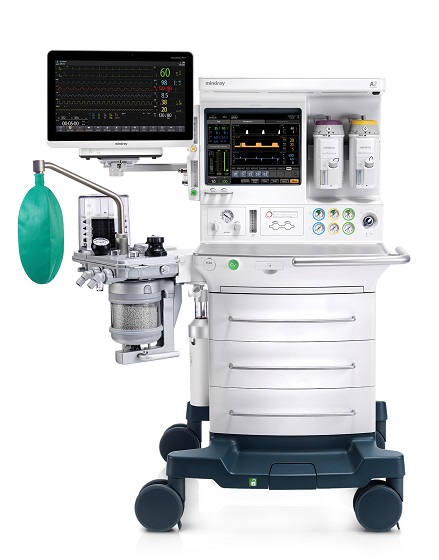Mindray, a vendor of anesthesia machines and other medical devices, has successfully implemented a fix to its anesthesia product line to modify a feature that had presented a significant safety risk. The change was made in response to recommendations that ECRI shared with the company during the course of an Evaluation of its anesthesia machines, published in November 2020. ECRI recently confirmed the effectiveness of that change and updated our Evaluation in May.
The identified problem is one we've observed repeatedly in units we evaluate—the ability to set the default low-minute-volume alarm to zero. Temporarily setting the low-minute-volume alarm to zero is a common practice, but allowing the default limit to be set to zero essentially turns off the alarm for one of the most critical measurements in anesthesia. Failure to detect a lack of respiration for many minutes can result in hypoxia and death. This scenario may seem far-fetched, but ECRI has investigated several fatalities that would likely have been prevented if the default low-minute-volume alarm limit been set at a reasonable value.
During our Evaluation testing of Mindray's A5 Advantage and A7 Advantage in 2020, we made the company aware of the problem and the attendant risks, and encouraged them to implement a fix, as is our standard practice. The vendor was ultimately convinced, and updated the software on its entire product line. Since the update, the default limit cannot be set lower than 0.1 L/min. The user can still change the limits to zero during a case.
In a follow-up to our Evaluation of the two Advantage units, published on May 7, we judged the safety of both products to be excellent, with specific mention of the minute volume default alarm limits. ECRI commends Mindray for its continuing commitment to patient safety and its willingness to modify its products.
 The Mindray A7, one of the products that received the software revision that resolved the low-minute-volume default issue. (Image courtesy of Mindray.) The Mindray A7, one of the products that received the software revision that resolved the low-minute-volume default issue. (Image courtesy of Mindray.) |

